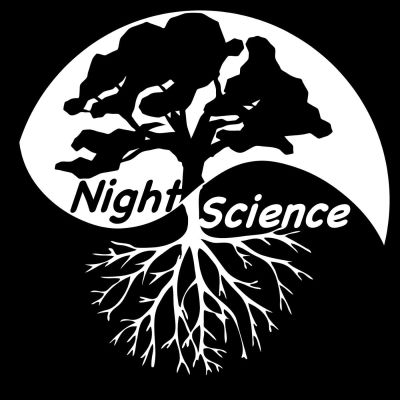Where do ideas come from? In each episode, scientists Itai Yanai and Martin Lercher explore science's creative side with a leading colleague. New episodes come out every second Monday.
http://night-science.org
Gesamtlänge aller Episoden: 1 day 12 hours 30 minutes
- 1
- 2
- 1
- 2
episode 1: Bonnie Bassler and living on the edge in a nerdy kind of way
Bonnie Bassler is the Chair of the Molecular Biology Department at Princeton. In this episode, Bonnie talks about her passion for scientific inquiry, creativity, mentorship, and how the journey of discovery is about asking the right questions, distinguishing between what you can do and what you should do, and about embracing the unexpected...
episode 2: Tom Mullaney & Chris Rea on giving thanks to bias
Tom Mullaney is a Professor of History at Stanford University and the Kluge Chair in Technology and Society at the Library of Congress, and Chris Rea is a Professor of Asian Studies at the University of British Columbia. In 2022, Tom and Chris published the book ‘Where Research Begins: Choosing a Research Project That Matters to You (and the World)’...
episode 3: Prisca Liberali and the junkies of discovery
Prisca Liberali is a senior group leader at the Friedrich Miescher Institute for Biomedical Research in Switzerland. In this episode, Prisca tells us how her creative thinking thrives on recursive thinking – going deeper and deeper into a problem from different angles. Prisca also deliberately uses carefully chosen conferences to discuss and to develop ongoing projects...
episode 4: Howard Stone on how to tilt your head for discovery
Howard Stone is a Professor of Engineering at Princeton. His research explores how fluid dynamics can help to understand diverse systems, from bacterial biofilms to the earth’s interior. In this episode, Howard explains how a lot of important, low-hanging fruit are at the interface between disciplines. Howard is most creative when he debates phenomena at a blackboard together with a collaborator...
episode 5: Daniel Dennett’s intuition pumps
Daniel Dennett, Professor at Tufts University, may be the most important living philosopher, tackling the biggest questions around: what is consciousness, do we have free will, how does evolutionary adaptation occur? In this episode, Dan tells us about some of his ‘intuition pumps’ - tools that are as indispensable for thinking as hammers and saws are for carpentry...
episode 6: Christina Curtis and keeping the faith in the process
Christina Curtis is a Professor of Medicine and the Director of Artificial Intelligence and Cancer Genomics at Stanford University’s Cancer Institute. Among her many achievements is the conception of the “Big Bang Theory” of tumor biology. In this episode, she tells us how not being biased by assumptions of what we know has been very helpful in her research. We talk about how her background in statistical genetics has shaped her cancer research...
episode 7: Peter Ratcliffe on being the master of daydreams
Peter J. Ratcliffe shared the 2019 Nobel Prize in Physiology or Medicine for his work on oxygen sensing in aminal cells. He directs research institutes in London and Oxford. In this episode, he reveals the interplay between dissociation – daydreaming – and interaction with colleagues as a major source of his scientific creativity...
episode 8: John Mattick and doing what your mother taught you
John Mattick is Professor of RNA Biology at the University of New South Wales in Sydney, Australia. For decades, he has been on a mission to show that the large portions of the human genome that many scientists consider useless "junk" instead have important regulatory functions...
episode 9: Steve Quake and the Creative Network
Steve Quake is a Stanford University professor and the Head of Science at the Chan Zuckerberg Initiative (CZI). Among his many inventions are DNA sequencing methods for non-invasive prenatal testing...
episode 10: Carolyn Bertozzi and a long game called science
Carolyn Bertozzi is a Professor at Stanford University. In 2022, she was awarded the Nobel Prize in Chemistry. In this episode we talk about how the process of science is unstructured, so you don’t know when and where the next idea is going to come – sometimes even at the supermarket checkout line. For Carolyn, science is a long game, where one person’s negative result might be picked up a decade or a century later, leading to a new breakthrough...
- 1
- 2
- 1
- 2
